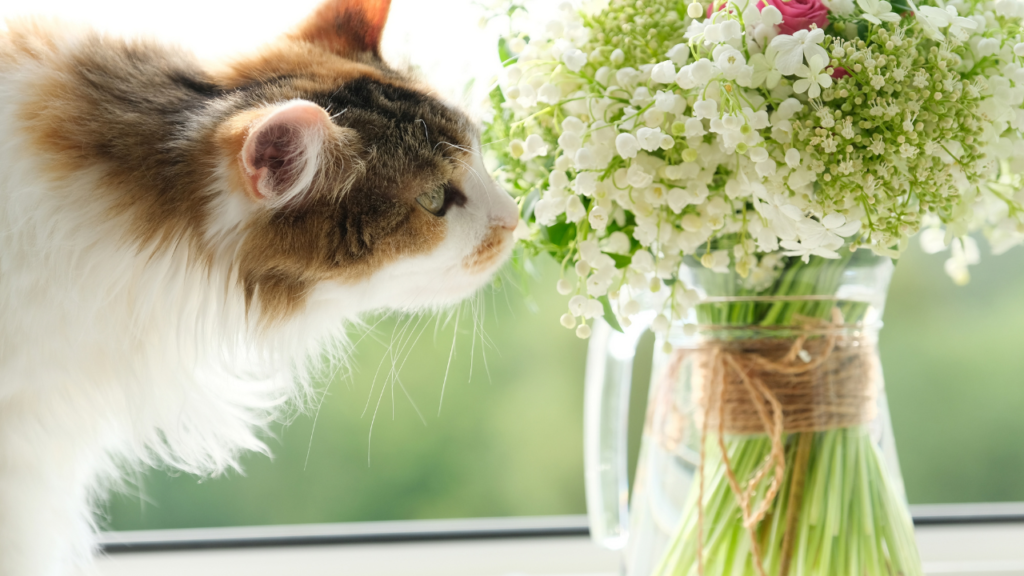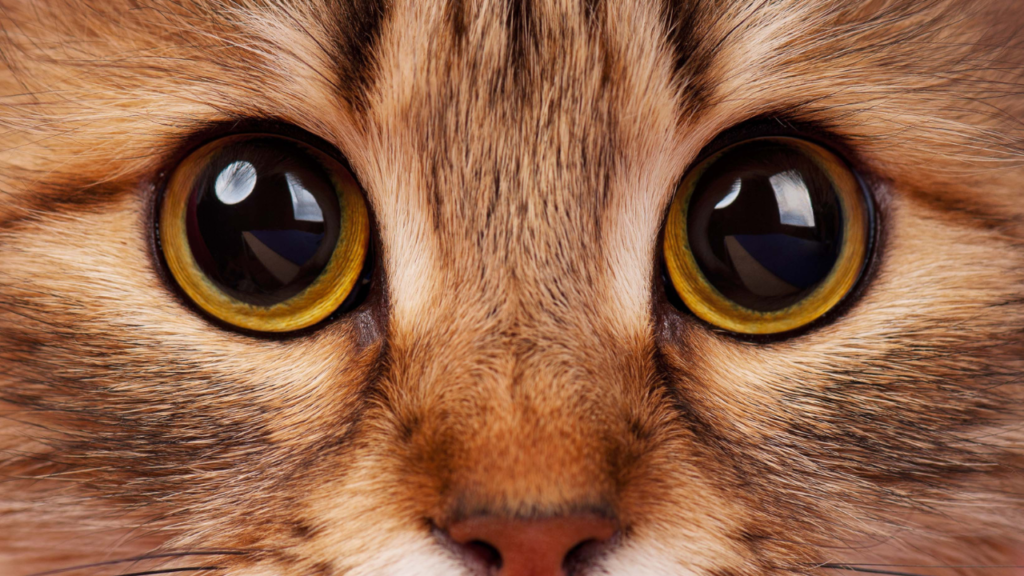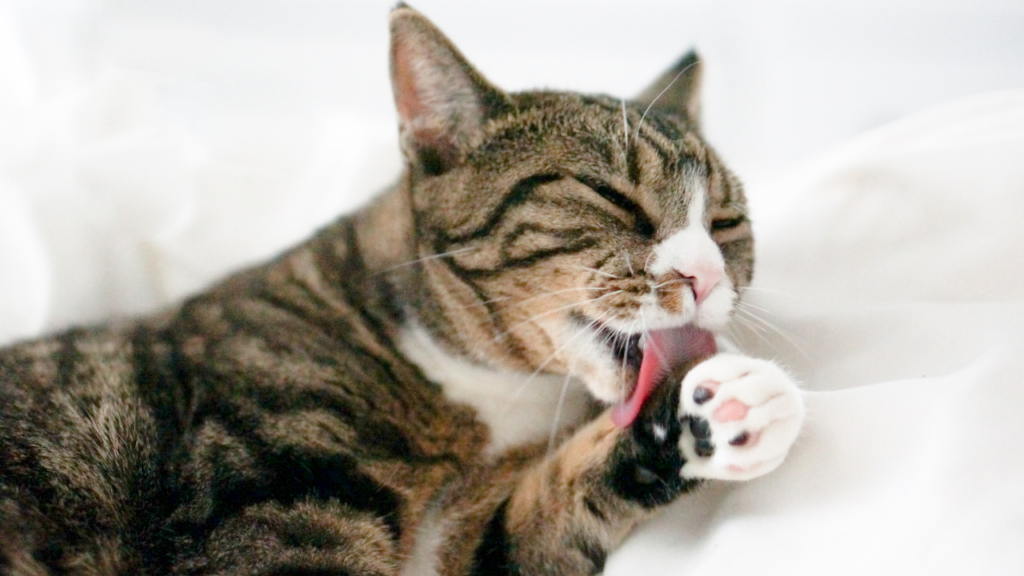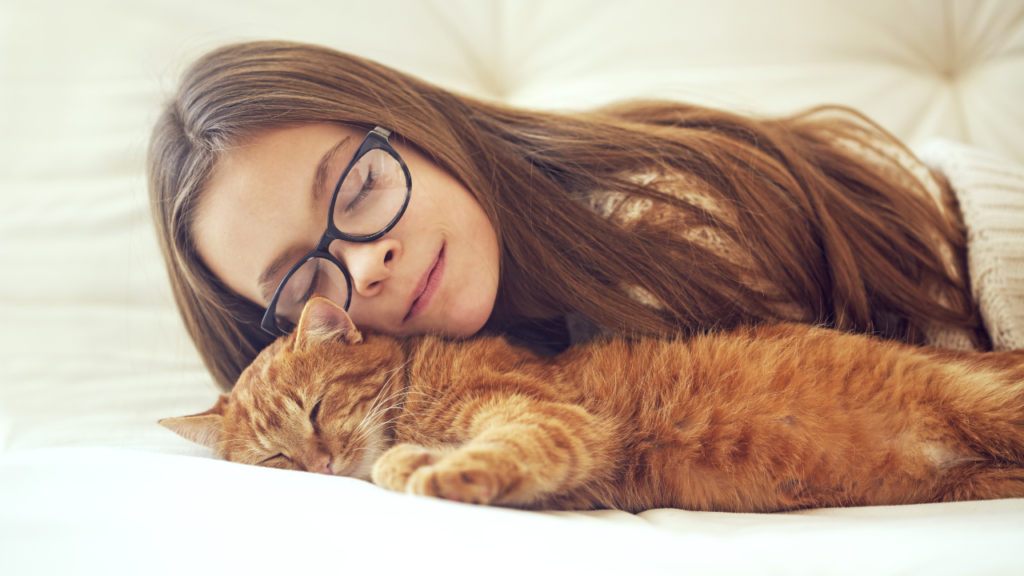WHY does your cat sleep with you? you should be thrilled
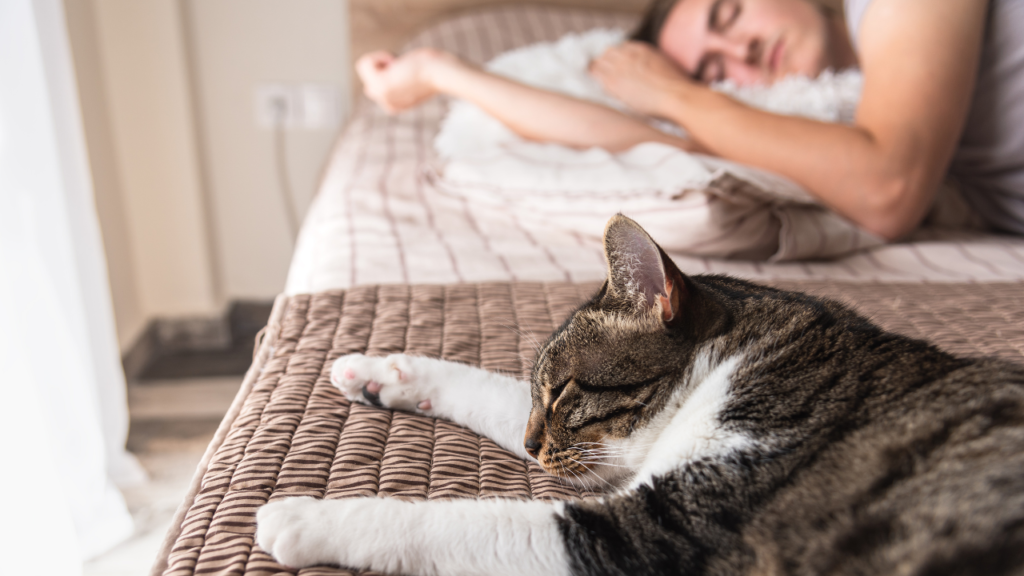
There’s something about getting into bed at night and having your pet join you that can’t be matched. When your cat comes and curls up against you, it feels cozy and comforting. Even so, you can’t help but wonder: why does your cat sleep with you? Is it doing it out of affection or just because it’s comfortable?
The answer may be a mix. If your cat sleeps with you, chances are a few things prompt him to seek you out, but don’t worry. Most of the reasons are pretty flattering. The more you know about your cat’s sleep behavior, the better you’ll be able to guess why he’s chosen you to be his nap buddy. And if you like co-sleeping, you can do your best to keep the habit going strong!
This is why your cat sleeps with you at night
Your feline friend may choose to sleep with you for a few different reasons. Cats may sleep with humans because they want to be warm and cozy as they snooze. Your cat could be attracted to your body temperature, and he’s using you as a heated bed. Whatever works, right?
But other, more meaningful reasons could be behind your cat’s decision to sleep next to you. Some cats like to sleep on or near their humans as a way of marking their territory. In other words, your cat knows that sleeping on you will leave his scent behind, and he wants it to be obvious to other cats that you’re his.
Your cat might also be curling up next to you because you help him feel secure. Cats are most vulnerable when they’re asleep, and your presence might reassure your cat that they’re safe while they snooze. Sleeping by you means your cat trusts you and feels safe around you.
Cats also sleep alongside their humans as a way of bonding. If your cat curls up against you or uses you as a pillow, he may be demonstrating that he likes you and wants to be close to you. How sweet!
What does it mean if your cat chooses to sleep with you over other humans?
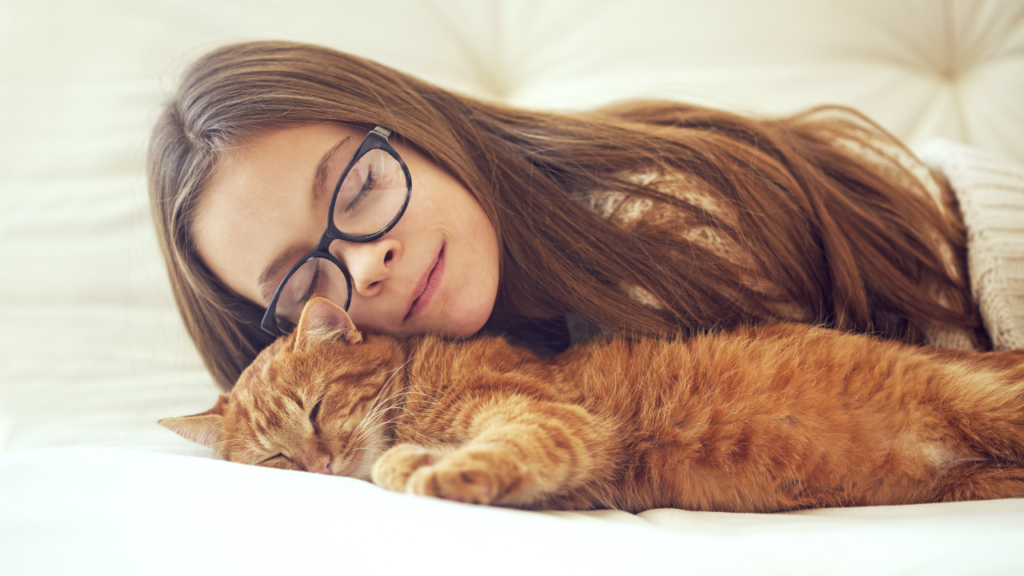
If your cat repeatedly sleeps with you, instead of other humans in the home, he’s indicating that you’re his favorite person. According to Union Lake Veterinary Hospital and Pet Services, cats often bond more closely with one human in the home. Often, cats pick the person who cares for them every day. So, if you’re the one who feeds your cat and cleans up after him, think of this as your cat’s way of saying thank you.
What is the significance of a cat sleeping with you?
Cats are affectionate creatures who enjoy cuddling once they get to know you. Your cat is letting you know that they want to stay close as they sleep. This is similar to cats’ typical activity of pillowing each other.
Do cats sleep with the person they adore most?
That’s why cats choose to sleep next to the person they love and trust the most. Cats that are close will sleep next to each other in the wild, and this may also occur when people and cats are together.
Why do cats always want to sleep with you?
There are numerous causes for this, but most of the time, it is the person who looks after them every day. This link is crucial to your cat since cats are sociable animals who require affection and attention from their owners. Sleeping with you is another way they express their love for you.
Why is your cat sleeping on your chest?
Cats are known to seek warm and comfy places to relax, and their owners’ bodies are the ideal combination of warm, soft, and familiar. The gradual rise and fall of our chests allows them to feel their mother’s heartbeat, making them feel safe and comfortable since they were kittens.
How to entice your cat to sleep in your bed at night
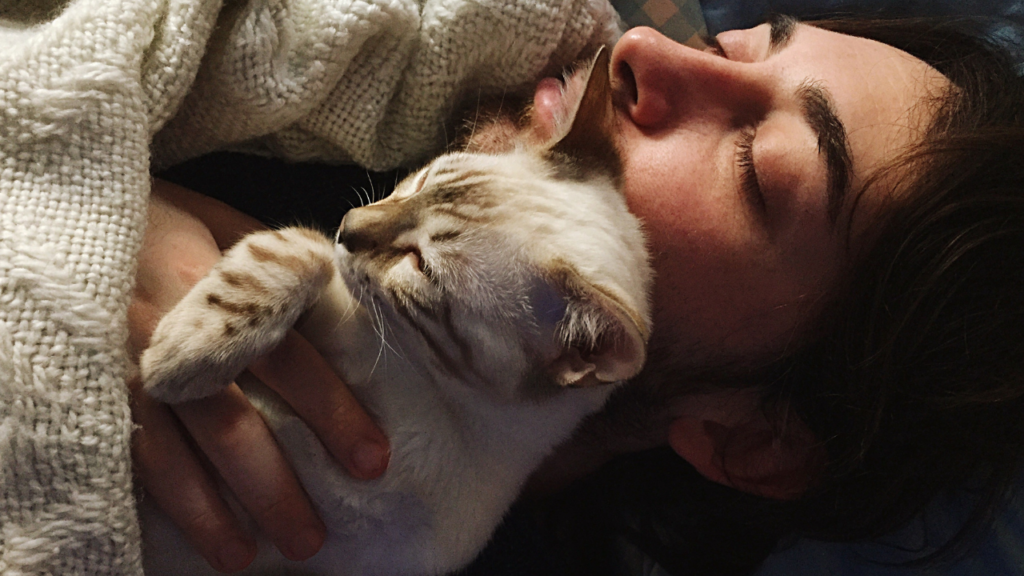
Especially now that you know what an honor it is to have a cat in your bed, it only makes sense that you’d love the idea of cuddling up to a furry friend at night. Many cats will naturally gravitate toward their favorite person when they’re sleepy, but others might need some coaxing to join you for a nap or for the night.
The best way to increase your chances of getting your cat to sleep on your bed is to spend more time bonding with them during your waking hours. If you keep your bedtime routine consistent, too, your cat will be able to expect when bedtime is coming and where you’ll be for the night. Of course, it will serve you well to make your bed or bedroom extra inviting for your kitty. Whether you use their favorite blanket on your bed or bring them a treat when you head to bed, there are so many ways to go.
More ways to bond with your cat while you’re awake
Having your cat sleep with you can be a great bonding experience, but some cats just aren’t the cuddly type and may never join you in bed. Fortunately, there are plenty of other ways you can bond with your cat.
Playing with your cat is a great option. Get a variety of cat toys and test them out to see which ones your little buddy likes the most, then make a point of playing with your cat daily. This routine interaction not only provides a chance for you to get to know your animal better and give him some entertainment, but it can also help to keep your cat healthy and fight off obesity. Remember, just a few minutes a day makes a big difference to a pet’s health and happiness
You can also use grooming sessions as valuable bonding time with your cat. Many cats enjoy being gently brushed, and this can even mimic the way that your cat might mutually groom another feline. Pick out a brush that’s soft and gentle, then experiment with different stroke intensities and speeds until you find what yours likes the most. Many cats enjoy having their chin and cheeks brushed, so see if brushing those areas prompts your cat to purr and press against the brush. When that happens, you know you have a winner.
Feeding your cat is another great way to bond with him. If you haven’t done so already, make yourself the person who feeds your cat breakfast every day. Providing the occasional cat treat can also help strengthen your bond with your kitty, and it can be a good way to win over the trust of a cat who may be new to your home.
WHY does your cat sleep with you? you should be thrilled Read More »

